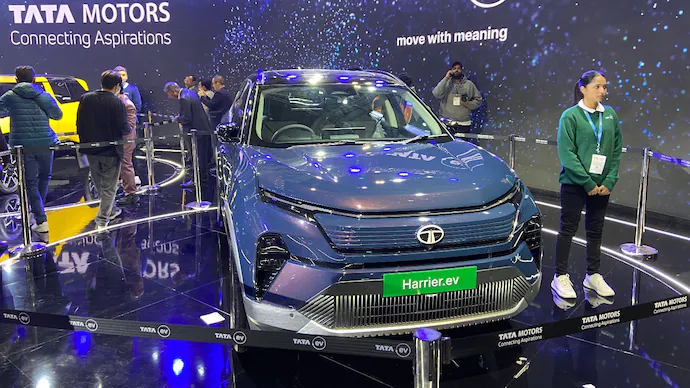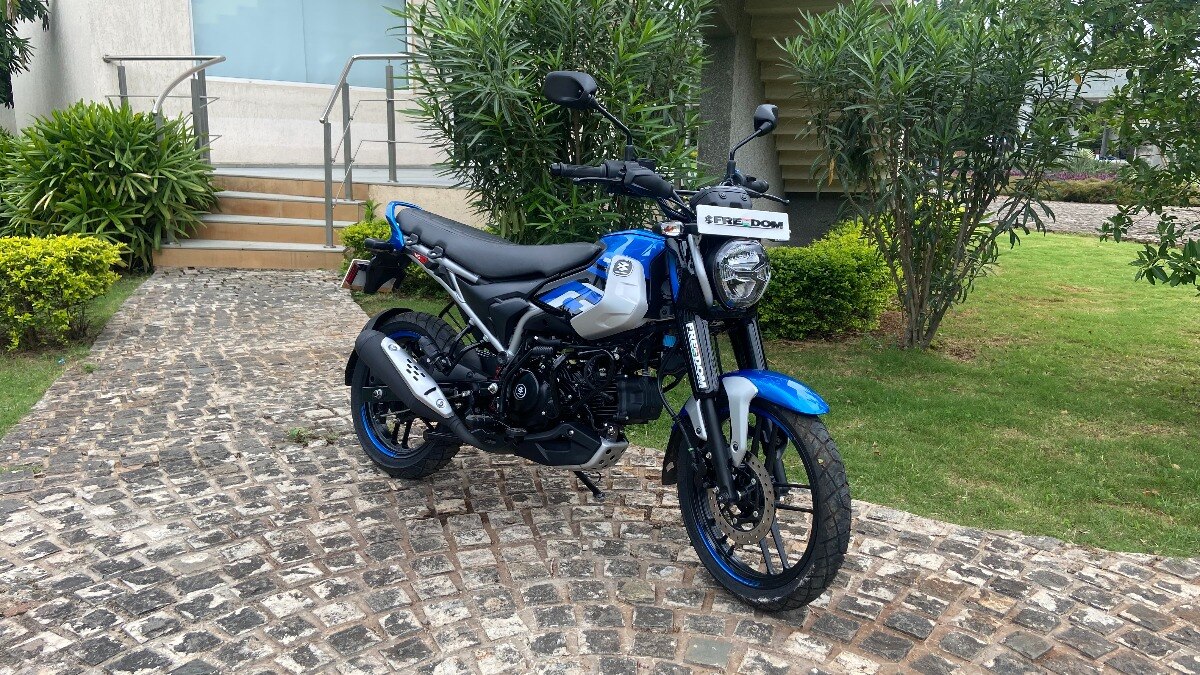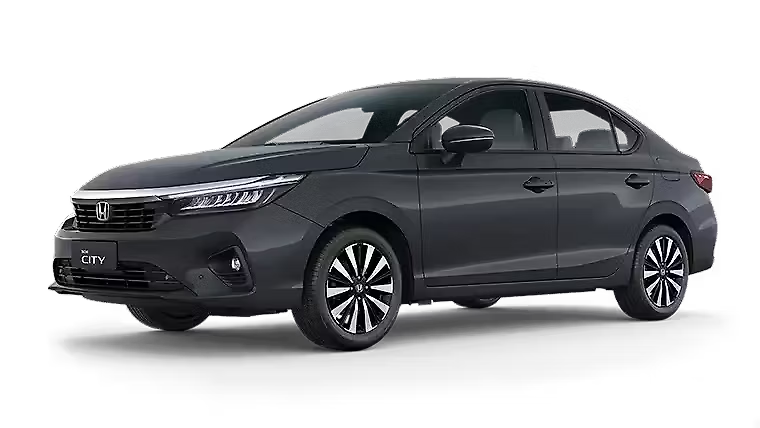Table of Contents
Tata Motors is preparing to electrify India’s premium SUV segment with the official launch of the Tata Harrier.ev on June 3, 2025. Unveiled earlier this year at the Bharat Mobility Global Expo 2025, the Harrier.ev marks a pivotal advancement in Tata’s aggressive push towards sustainable and high-performance electric mobility. With a real-world range target of approximately 500 kilometers, dual-motor quad-wheel-drive capability, and futuristic styling, the Harrier.ev positions itself as a formidable rival to upcoming electric SUVs like the Mahindra XUV 9e.
Built on acti.ev+ Architecture: A Foundation for Next-Gen EVs
At the heart of the Harrier.ev lies Tata’s advanced acti.ev+ platform, developed for scalable, future-ready electric vehicles. This architecture allows for flexible battery configurations, intelligent motor integration, and enhanced safety standards—all tailored to modern urban and off-road requirements.
The Harrier.ev also benefits from a monocoque chassis derived from the Land Rover D8-based OMEGA architecture, a platform jointly developed with Jaguar Land Rover. This not only ensures structural rigidity and high crash safety but also lends the vehicle a dynamic ride quality that blends comfort with control.
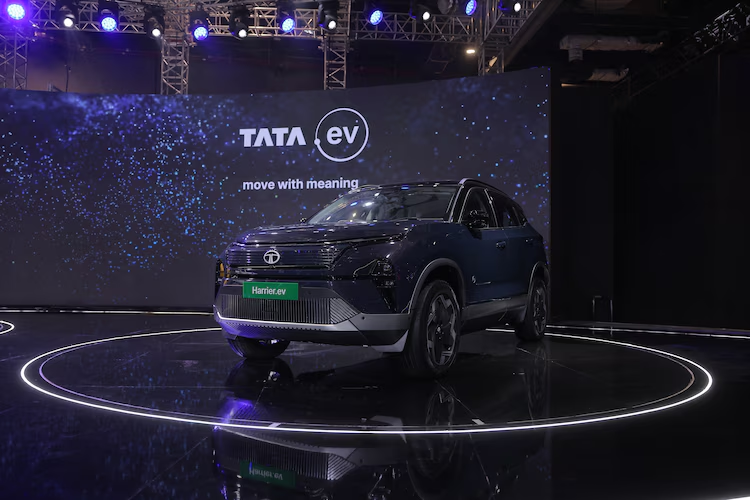
Electrified Design with Rugged Elegance
While retaining the commanding road presence of the ICE Harrier, the EV version introduces several bold and distinctive design updates. A redesigned front bumper and closed-off grille give it a futuristic edge, while full-width LED daytime running lights with expressive detailing enhance visibility and visual appeal.
Sharp body lines, precise surfacing, and aerodynamically tuned turbine blade alloy wheels contribute to both aesthetics and performance. These design enhancements improve airflow efficiency while maintaining the Harrier’s rugged DNA, signaling a refined yet robust electric SUV built for the modern driver.
Dual-Motor Setup with Quad-Wheel-Drive Powertrain
The Harrier.ev is engineered for performance as much as sustainability. Powered by a dual-motor configuration delivering quad-wheel-drive (QWD), it promises robust traction and handling across diverse terrains. The setup produces a peak torque of 500Nm, delivering instant acceleration and superior control whether you’re navigating city roads or countryside trails.
While Tata Motors has yet to disclose the exact battery capacity, the brand aims for a real-world driving range of approximately 500km—a figure that should substantially reduce range anxiety for long-distance travelers.
Also Read : Kia India Reports 25,025 Unit Sales in January 2025; Kia Syros Debuts Strong
Supporting the EV Ecosystem: Charging Infrastructure and Future Strategy
Tata Motors isn’t just launching a vehicle—it’s actively shaping India’s EV ecosystem. Through its Open Collaboration 2.0 initiative, the company is working with charge point operators (CPOs) and oil marketing companies (OMCs) to expand India’s public EV charging network to 400,000 points by 2027.
According to Vivek Srivatsa, Chief Commercial Officer of Tata Passenger Electric Mobility (TPEM), India’s charging ecosystem still faces the “chicken-and-egg” dilemma—where lack of infrastructure hinders adoption, and vice versa. However, Tata believes increasing EV penetration, especially in the premium segment, will catalyze the growth of private and semi-public charging networks, providing a much-needed boost to India’s electrification goals.
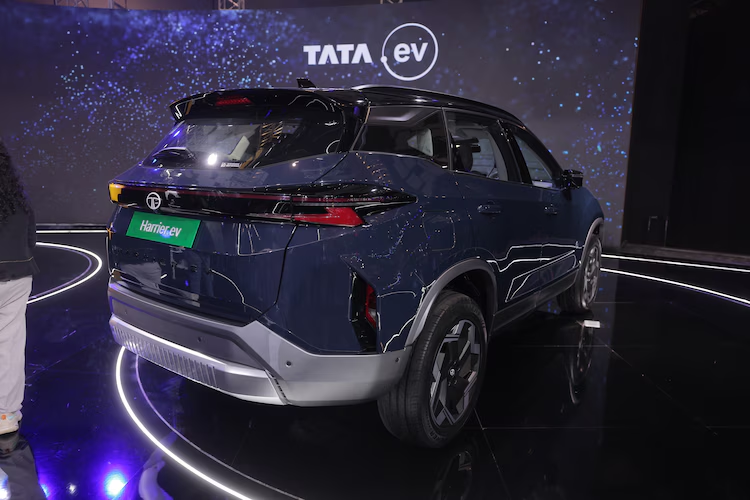
Tata’s EV Leadership and the Road Ahead
Since launching the Nexon.ev in 2020, Tata Motors has sold over 200,000 electric vehicles, making it the market leader in India’s EV segment. With the Harrier.ev joining a lineup that already includes the Tiago.ev, Tigor.ev, Nexon.ev, Punch.ev, and the upcoming Sierra.ev and Curvv.ev, Tata is aggressively consolidating its presence across multiple price points and body styles.
The Harrier.ev is more than a new product—it’s a powerful symbol of Tata’s long-term vision for sustainable mobility, performance-driven EVs, and ecosystem-building efforts.
Conclusion: A Pivotal Moment for India’s EV Market
The launch of the Tata Harrier.ev on June 3 signals a major leap forward for India’s EV landscape. With its striking design, advanced electric architecture, and Tata’s full-stack ecosystem support, the Harrier.ev is poised to redefine expectations in the electric SUV category. As Tata continues to expand its EV footprint, the Harrier.ev may well become the benchmark for what a homegrown, premium electric SUV can achieve—both in terms of performance and long-term impact.

